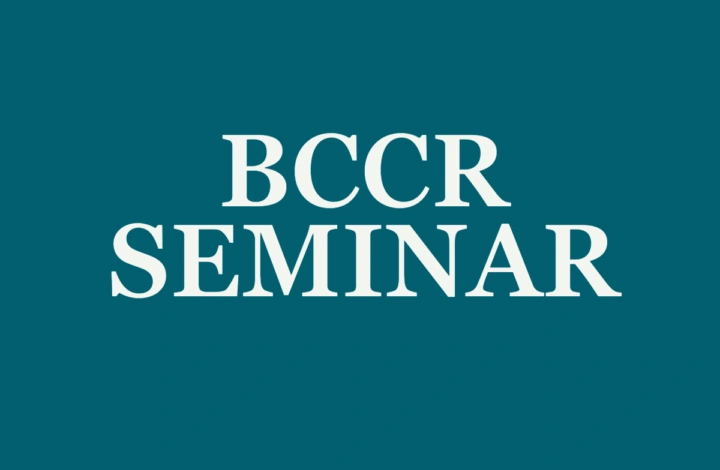Kalender
BCCR Seminar: “Past Climate from Water Isotopes in a High-Resolution Greenland Ice Core and Speleothem Fluid Inclusions”.

Tidspunkt
19. mai 2025, 09:00-10:00
Sted
BCCR seminar room on the 4th floor of the West wing
BCCR Monday Seminar will be given by Prof. Ryu Uemura from Nagoya University. He will talk about “Past Climate from Water Isotopes in a High-Resolution Greenland Ice Core and Speleothem Fluid Inclusions”.
Abstract
This presentation will introduce two recent studies using the stable isotopes of water to investigate past climate variability. The first study presents a high-resolution ice core drilled by a Japanese team from southeastern Greenland. A multi-month age scale was developed by matching oxygen isotope data with isotope-enabled climate model outputs (1871–2020 CE). High snow accumulation (ca. 1 m yr⁻¹) preserved sub-seasonal signals, enabling monthly order dating. The chronology was validated using accumulation rates, hydrogen peroxide, and volcanic signals. The second study analyzes fluid inclusion (liquid water trapped in calcite) isotopes in a stalagmite from Okinawa (Japan) to assess hydroclimate responses to volcanic and solar forcings during the Holocene. The results show that clusters of large volcanic eruptions coincide with cooling phases, suggesting that clusters of volcanic activity during the mid-Holocene likely contributed to climate change at multi-decadal scales via a teleconnection between the subtropical Northwest Pacific and the North Atlantic regions.
Flere kalenderoppføringer
Se alle
BCCR Monday Seminar 8th September: " Wave-driven ocean currents: how ocean responds to Stokes transport"
